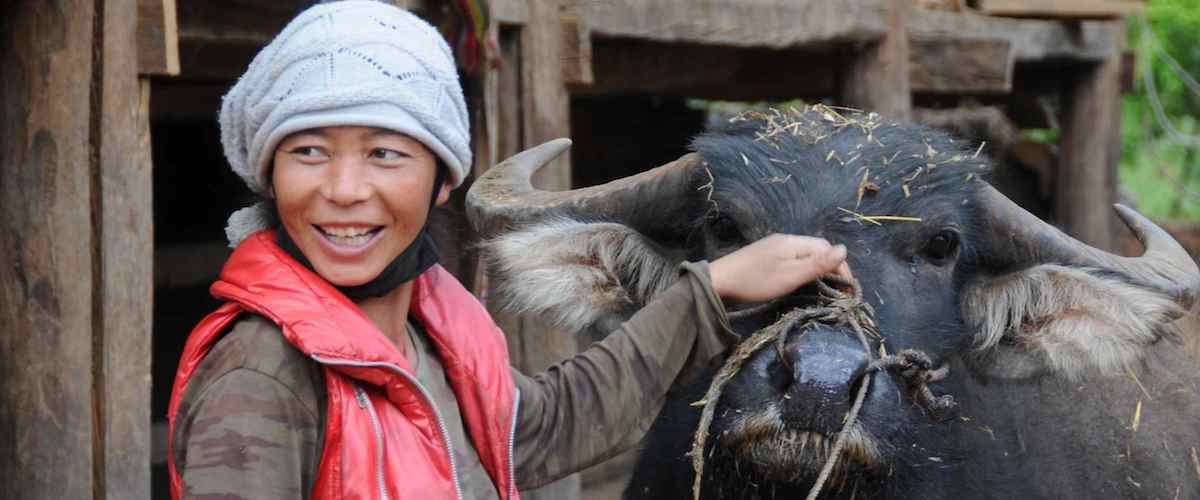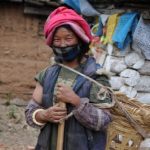Pumi

The Pumi are a people ethnically, linguistically and religiously related to Tibetan peoples but with a distinct identity and history. Currently living in the mountains of Yunnan, a province in the southwest corner of China with many remote and difficult to reach areas, they trace their lineage to distant regions of China.
According to surprisingly complete historical records, the ancestors of the Pumi were nomadic tribes who roamed the Tibetan plateau in Qinghai province, many hundreds of miles north of where they now reside. They slowly migrated to Sichuan province, and finally south to Yunnan province, between the 7th and 14th centuries.
The government collectively calls these tribes the Pumi, and has done so since the 1960’s, whereas for much of their history each tribe went by a unique name. They live at high altitudes in approximately 500 mountain villages.
The areas where they lived were once extremely remote and difficult to reach, but tourism and expansion has brought roads to their mountain homes. This has enabled the Pumi to begin venturing out to find work in cities along with many rural peoples. In addition, it’s an open door for those who might spread the gospel to more easily reach the previously remote tribes.
The Pumi religion is a mixture of the many beliefs they have encountered and assimilated over their long history. Tibetan Buddhism has heavily influenced the Pumi, but they retain many elements of ancient folk religion as well. They are a people who live in constant fear of the spirit world they worship fickle and easily angered deities. If angered, these gods can release danger and wild beasts against the people’s livestock. Each village honors their own local mountain gods, which are worshipped with festivals and offerings throughout the year.
These are people totally lost and lacking any real message of the Gospel. But through compassion and community development projects, new works are beginning to gain a foothold among this lost group. Many challenges face those who might seek to reach the Pumi. The linguistic variety among the tribes makes communication difficult, and means they have no Bible to read. However, the darkness of their complex and ancient beliefs proves the most difficult barrier. Because of the difficulties, many might say the time is not yet right to reach the Pumi. But in John 4:35, Jesus says otherwise. “Don’t you have a saying, ‘It’s still four months until harvest’? I tell you, open your eyes and look at the fields! They are ripe for harvest.”






